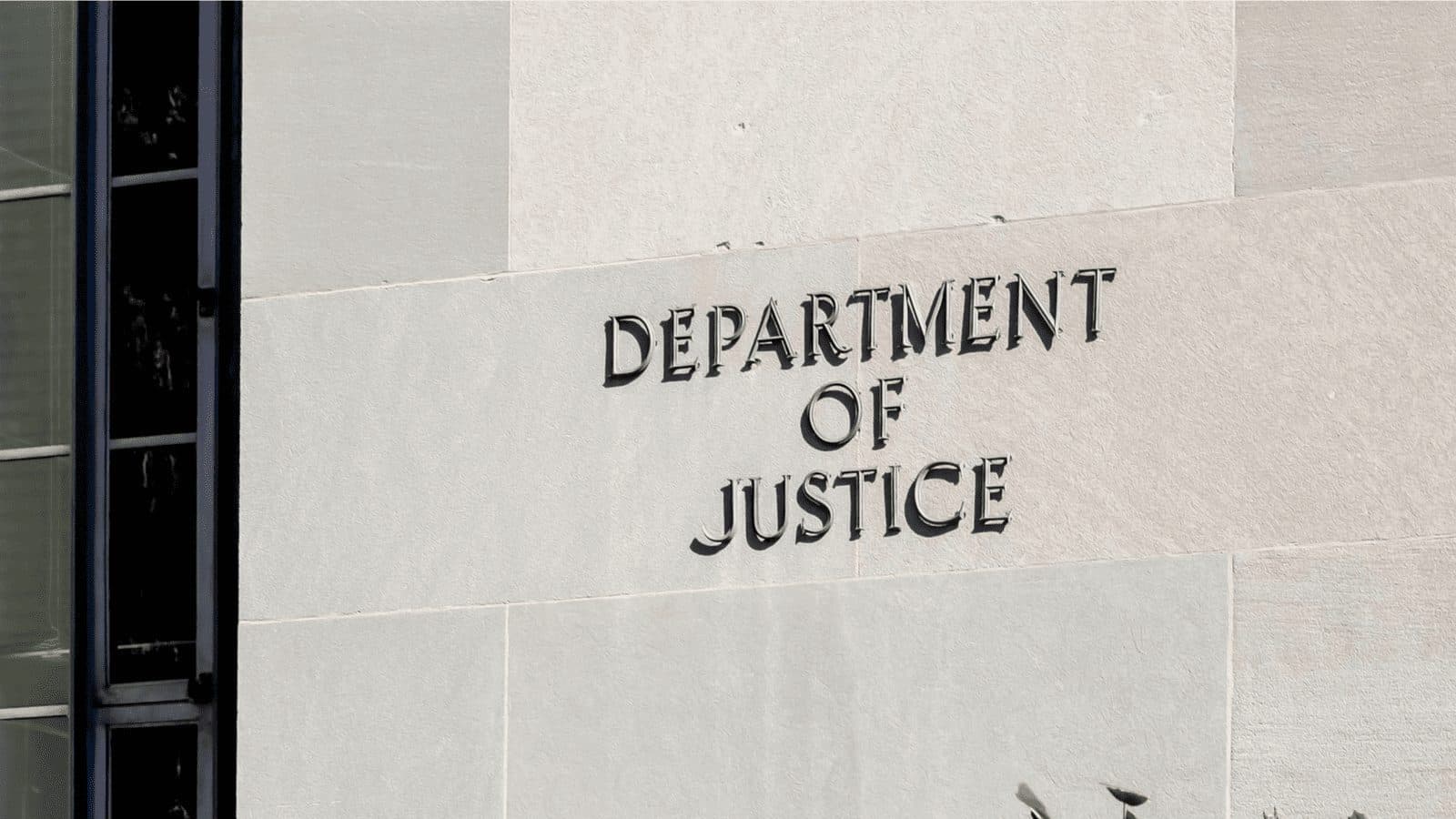US Government Now Has More BTC Than Largest Crypto Holders
Roughly $1 billion worth of bitcoin was recovered in what the Department of Justice calls the second-largest financial seizure ever

Department of Justice | Source: Shutterstock
The US Department of Justice has seized roughly $1 billion worth of bitcoin (BTC) from a man who “unlawfully obtained” more than 50,000 bitcoins from the Silk Road dark web internet marketplace in 2012.
James Zhong pleaded guilty in court on Nov. 4 to committing wire fraud and is set to be sentenced in February.
The whereabouts of the stolen 50,000 BTC remained unknown for more than 10 years, according to Damian Williams, US attorney for the southern district of New York.
Zhong had executed a detailed scheme designed to steal bitcoin from the Silk Road Marketplace — one of the first modern darknet markets. Silk Road operated as a Tor hidden service — a privacy tool that allows anonymous internet browsing.
Tyler Hatcher, a criminal investigator for the Internal Revenue Service (IRS) said following the heist, Zhong “attempted to hide his spoils through a series of complex transactions.”
But that didn’t prevent law enforcement from following the bitcoin trail. After obtaining a search warrant for Zhong’s residence in November 2021, authorities located the lost bitcoins in “an underground floor safe,” as well as on a single-board computer in a bathroom closet. The computer was beneath blankets in a popcorn tin stored in a bathroom closet.
The bitcoins were worth roughly $3.4 billion at the time of the seizure. Officials also found nearly $662,000 in cash.
“This case shows that we won’t stop following the money, no matter how expertly hidden — even to a circuit board in the bottom of a popcorn tin,” Williams said in a statement.
In February, a New York couple was indicted for stealing about 120,000 BTC, much of which was recovered by law enforcement.
Another Silk Road-related seizure in November 2020 netted the government 70,000 BTC.
The latest haul puts the US government significantly ahead of the largest corporate holders of BTC — more than Microstrategy, Block.one or the soon-to-be-released surviving bitcoins from the bankrupt Mt. Gox crypto exchange.
Forfeited assets are likely to be administered by the Treasury Executive Office for Asset Forfeiture, which manages the Treasury Forfeiture Fund (TFF) — an account for where non-tax forfeitures are deposited.
Previously, seized assets have been auctioned off to various bidders. Most notably, in 2014, venture capitalist Tim Draper purchased 30,000 bitcoins for an undisclosed amount.
This story was updated on Nov. 7 at 3:18 p.m. ET, to clarify the current US dollar value of the bitcoin seized.
Get the day’s top crypto news and insights delivered to your inbox every evening. Subscribe to Blockworks’ free newsletter now.






